Starbucks espresso which cup of espresso is best for you?
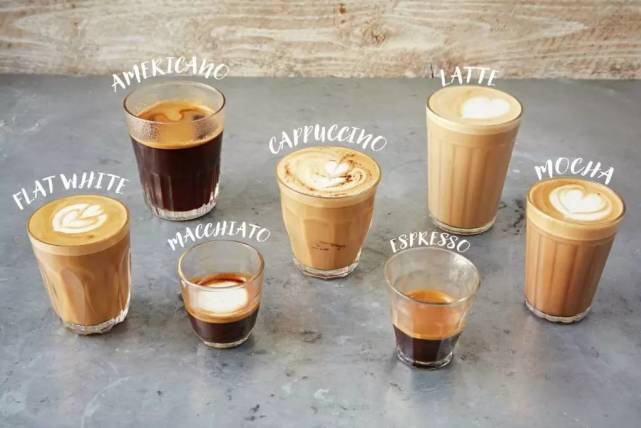
For professional baristas, please follow the coffee workshop (Wechat official account cafe_style)
It can be said that the popularity of coffee culture around the world is driven by espresso. This most popular coffee drink is made in cafes in every corner of the world. Starbucks, which has spread all over the world, has become synonymous with "coffee" in the eyes of many people.
The most classic espresso is actually espresso. Although there are many followers, it is preferred by more people to make various fancy drinks with milk, foam, or even water than pure drinks.
Maybe it's because there are so many espresso styles that Starbucks, Costa, and street cafes always have dizzy menus, such as cappuccino, macchiato, latte, fragrant white. What are the characteristics of these disagreeable coffees? Which coffee has a strong flavor? Which one is full of milk? There are so many kinds of espresso, which one should I order?
This time, let me show you a picture:
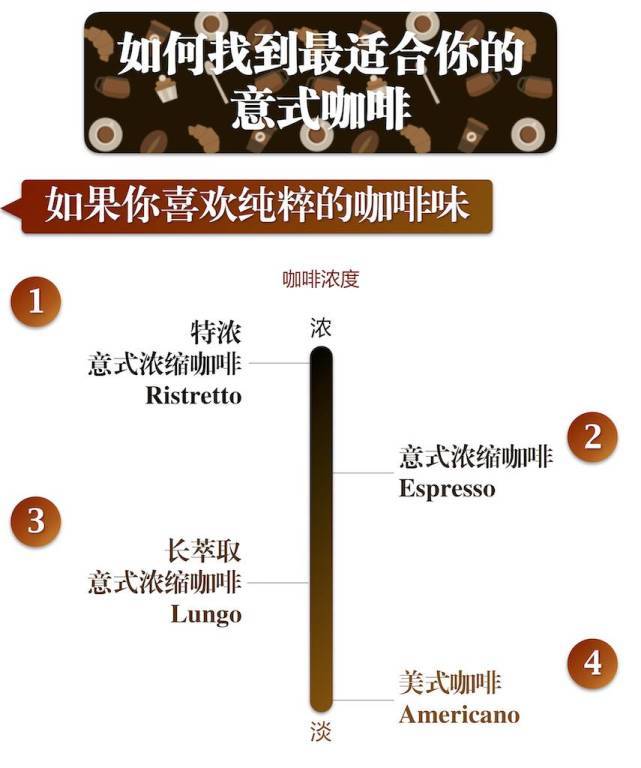
If you like the pure smell of coffee
Many people like to taste the pure taste, which ranges from strong to light in the world of espresso. What's the difference between espresso Ristretto, espresso Espresso, long extract espresso Lungo, and the common American coffee Americano?
Espresso espresso
Ristretto
If you want to find the strongest espresso, it must be espresso Ristretto. Usually, the water-sharing ratio of a cup of Espresso is about 1:2, while the Ristretto can be as high as 1:1, coupled with the fact that the coffee powder used is often finer, the espresso Ristretto is extremely full-bodied and much richer than other coffees.
Espresso
Espresso
A cup of espresso Espresso is about 30ml. Because the coffee powder is fine and the extraction pressure is high, even if the extraction time of coffee is very short compared to that of brewed coffee, Espresso still has a very strong taste.
Although soft, fruity coffee is becoming more and more popular these days, for most Italians, these fresh acidity and fruity are taboos. In Italian cafes, full-bodied, deep-roasted, thick Crema is the real symbol of coffee. As a result, espresso is usually roasted longer and deeper, reducing its original acidity and highlighting its bitterness.
It is worth mentioning that the often heard double espresso Double Espresso/Doppio is not "double" in concentration, but simply "two cups" of espresso. Because of the large quantity, double Italian concentration can be said to be an essential medicine for night owls.
Long extract espresso
Lungo
Friends who are familiar with Nespresso capsule coffee must be no stranger to long-extracted espresso Lungo. Generally speaking, the amount of powder needed to make a cup of Lungo is the same as that of Espresso, but the amount of water is 2-3 times that of Espresso, so Lungo takes longer to extract.
However, for deep-roasted espresso beans, long extraction is not a good idea. Over-extracted espresso tends to be bitter, as well as unpleasant flavors such as smoke and wood. However, for some delicate, shallowly roasted coffee beans, Lungo can be used to produce a cup of delicacy with great complexity. Therefore, a good cup of Lungo has more stringent requirements on the degree of roasting and grinding of coffee.
Cafe Americano
Americano
Although American coffee is called "American", it is actually a kind of espresso. It is a relatively light coffee made by adding boiled water to Espresso. Although some people scoff at its relatively light taste, American coffee, which is similar to the concentration of filter coffee, has still captured a large number of coffee fans.
For American coffee, I personally prefer coffee beans that are relatively lightly roasted, so I can often experience a flavor similar to that of a single brewed coffee, but the acidity and bitterness are often more obvious.
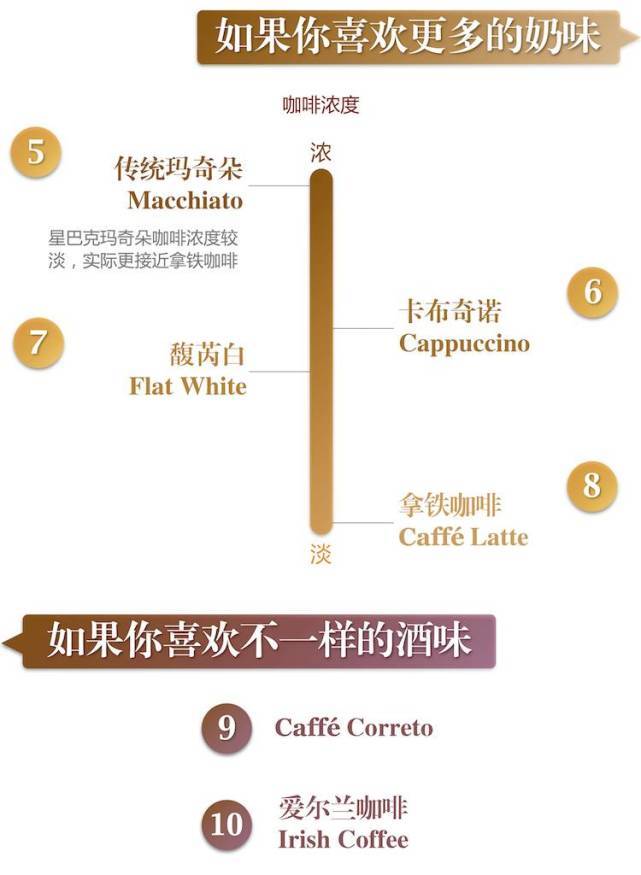
If you like more milk,
For espresso, milk can insulate the unpleasant bitterness of Espresso and make it more mellow and palatable. the thick layer of Crema with delicate foam and espresso can make beautiful flowers in the hands of baristas. Therefore, "Milk Coffee, made for each other" has been written into the consciousness of many people.
Usually, the common espresso coffee with milk is macchiato Macchiato, cappuccino Cappuccino, Frappe Flat White, and the most common latte Cafe Latte.
Traditional macchiato
Macchiato
The word "Macchiato" actually means "spot" in Italian, while the traditional macchiato Macchiato pours a small amount of milk foam into a cup of espresso as a mark. With a little milk added, macchiato's flavor is often sweeter and smoother than Espresso, and the rich roasting flavor of espresso is slightly restrained.
However, at Starbucks, caramel macchiato contains much more milk than traditional macchiato, and its taste and flavor are actually closer to lattes.
Cappuccino
Cappuccino
In the eyes of many coffee lovers, cappuccino Cappuccino can be said to be the perfect combination of milk, foam and coffee. As a must-have coffee drink for Italians in the morning, the traditional ratio of milk, foam and coffee in cappuccino is usually 1:1:1. However, this ratio is not a fixed formula, and it will be adjusted in different cafes and even in the hands of different baristas.
A good cappuccino has high requirements for milk foam, milk and coffee. Milk foam, to be full and solid, mellow and dense, without any visible bubbles; milk, should be fresh and sweet, the temperature should be just right, too hot will lack sweetness, too cold and less texture; coffee, must also be positive, Italian deep-roasted coffee is the most suitable.
Fu Ruibai
Flat White
The popularity of espresso around the world has made it blend with local coffee culture to produce many unique drinks. Among them, Flat White is the taste of coffee from Oceania. In China, Starbucks gave him a particularly good-sounding name-Furebai.
Unlike cappuccino, Flat White does not have the thick foam on the surface of coffee, but is simply mixed with steamed milk and coffee. Therefore, although Flat White lacks the mellow taste of cappuccino fine foam, it has a stronger coffee taste than latte.
Milk Flat White also often contains a small amount of milk foam, mainly to facilitate the creation of baristas. Therefore, the coffee concentration of Flat White is often very close to that of cappuccino.
Cafe Latte
Caf é Latte
The first time I ordered coffee in Italy, I ordered a cup of "Latte". At that time, the barista looked at me in doubt and gave me a cup of hot milk. Only after that did I know that the so-called "latte" is just milk.
In fact, lattes do not come from Italy, because it is difficult for people in other regions to get used to the rich taste of Espresso, so they add a lot of milk to keep out the bitterness and increase the sweetness. In general, the latte is much lighter than cappuccino and fragrant white, and should be the easiest espresso to drink.
Lattes with all kinds of syrup are many people's favorites at Starbucks. Vanilla, hazelnut and caramel all match sweet milk and relatively refreshing coffee flavors. If you like, you can also try to add some liqueur to the latte. The orange wine latte will never be forgotten.
In Italy, if you want to order a latte in a cafe, remember to say "caf é Latte" instead of "Latte", which means milk. Matcha lattes, black tea lattes and Chai lattes that are common in daily life have nothing to do with coffee.
If you like different flavors of wine,
Coffee is refreshing and alcohol warms you up. In fact, there are ways to drink coffee with alcohol in many places, such as Cafe Correto in Italy and Irish Coffee in Ireland.
Caf é Correto
Italy, which is rich in wine, is also rich in brandy. In Italy, people like to add the local brandy Grappa to the Espresso, which is called caf é Corretto, which is perfect at the end of a meal.
Of course, there are many ways to drink coffee with wine in Italy. In addition to Grappa, fennel wine Sambuca is also popular in northern Italy.
Irish coffee
Irish Coffee
Irish coffee is the most common alcoholic coffee drink in both cafes and bars. This kind of coffee is also easy to make, adding Irish Whiskey to Espresso and then scooping up a tablespoon of cream. Coffee warms people up and alcohol makes people drunk. Sixty or seventy years ago, in cold Ireland, people called this kind of coffee Warmer.
In addition to the above ten common coffees, Cumberland coffee with cream and chocolate-flavored mocha coffee are also popular Italian coffee drinks.
Of course, there are many kinds of espresso. If you accidentally miss your favorite, you are welcome to leave a message below to share your taste in espresso.
You are welcome to forward this article to your moments and friends' groups to see what kind of coffee your friends like best.
Text | Shi Lei
Editor | Wang Xin
Taste Wine Magazine
Important Notice :
前街咖啡 FrontStreet Coffee has moved to new addredd:
FrontStreet Coffee Address: 315,Donghua East Road,GuangZhou
Tel:020 38364473
- Prev
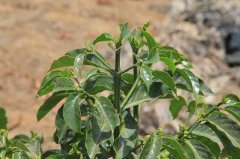
Eight boutique coffee producing areas in Guatemala describe in detail the impact of rainfall on coffee trees.
Professional baristas Please follow the Coffee Workshop (official Wechat account cafe_style) Coffee has helped the Guatemalan economy for more than a century. Today, an estimated 125000 coffee producers drive Guatemala's coffee industry, and coffee remains one of Guatemala's main exports, accounting for 40 per cent of all agricultural export earnings. Guatemala is the most likely.
- Next
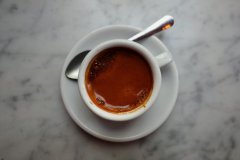
[coffee cold knowledge] how to drink a cup of Italian concentrate? What kind of coffee beans are used in Italian concentrate?
Professional barista communication please pay attention to the coffee workshop (Wechat official account cafe_style) espresso will be mixed beans, in order to increase the richness and harmony of the taste, but not absolutely necessary, but espresso is extracted with hot water and pressure, if it is not stirred to drink directly, the water-soluble and fat-soluble ingredients will be separated, the taste is not good
Related
- Beginners will see the "Coffee pull flower" guide!
- What is the difference between ice blog purified milk and ordinary milk coffee?
- Why is the Philippines the largest producer of crops in Liberia?
- For coffee extraction, should the fine powder be retained?
- How does extracted espresso fill pressed powder? How much strength does it take to press the powder?
- How to make jasmine cold extract coffee? Is the jasmine + latte good?
- Will this little toy really make the coffee taste better? How does Lily Drip affect coffee extraction?
- Will the action of slapping the filter cup also affect coffee extraction?
- What's the difference between powder-to-water ratio and powder-to-liquid ratio?
- What is the Ethiopian local species? What does it have to do with Heirloom native species?

